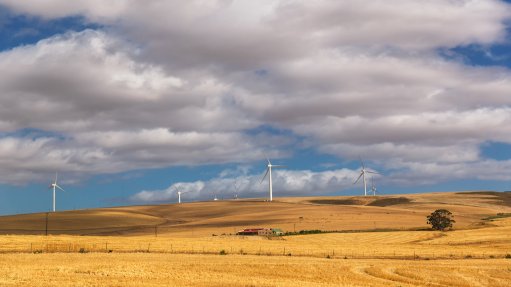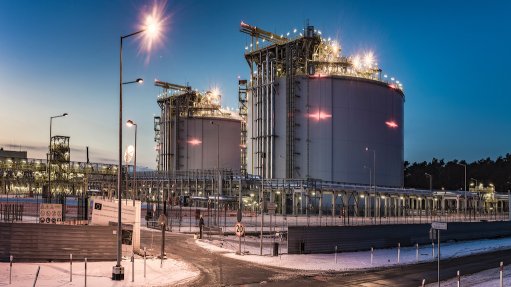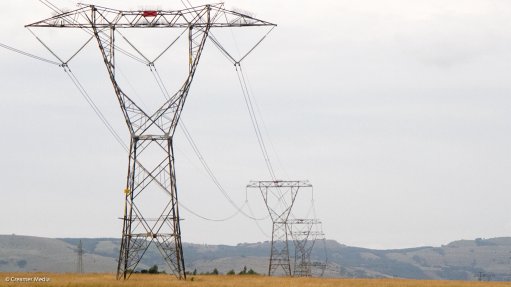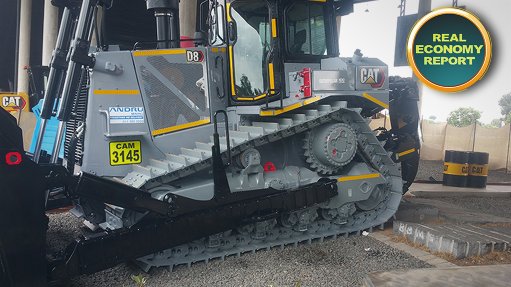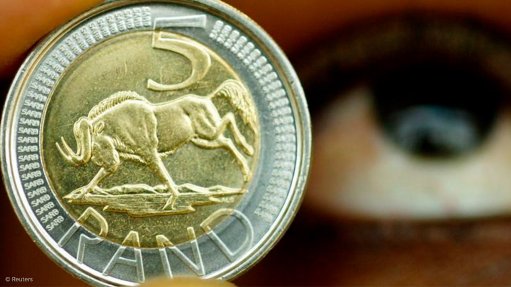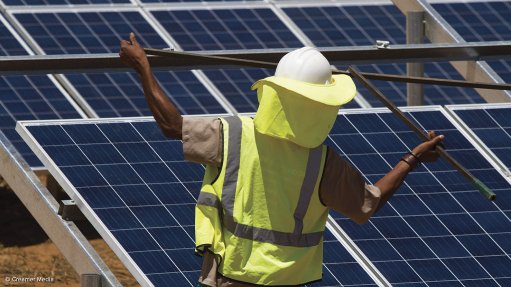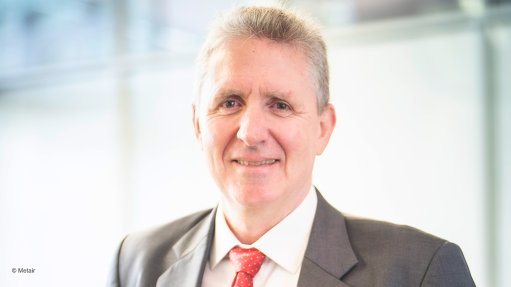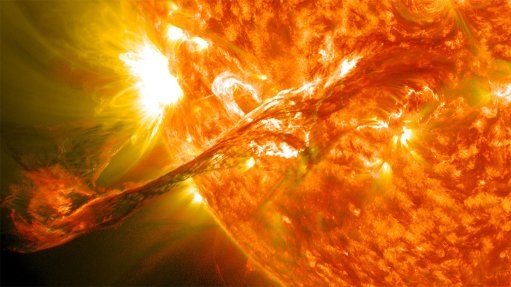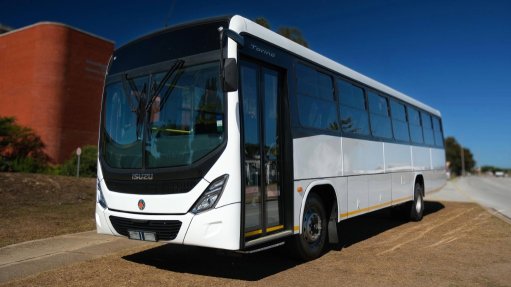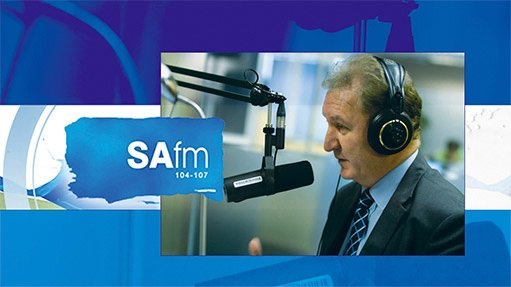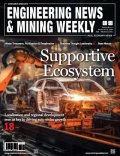DBSA highlights its contribution to infrastructure development in Africa
Development finance institution (DFI) the Development Bank of Southern Africa (DBSA) head of energy, environment and information and communications technology (ICT) Mathapelo Malao has emphasised that the DFI’s energy, environment and ICT division holds strategic value for infrastructure development in Africa.
“The Energy, ICT and Environmental cluster is a significant and strategic portfolio for the bank,” she stated at the ninth Unesco Africa Engineering Week and seventh Africa Engineering Conference on September 27.
She added that the DBSA had several divisions, including the project preparation, coverage, transacting and infrastructure delivery divisions that support the energy, environment and ICT division.
The project preparation division’s role is to catalyse early development capital, particularly for projects that are at the prefeasibility phase and require funding to reach full bankability.
The coverage division, meanwhile, contributes to building a pipeline of projects through tailoring infrastructure financing solutions to meet the needs of the DBSA’s clients.
The transacting division focuses on funding solutions that enable the development of social and economic infrastructure, particularly in the local government, energy, water, transport and ICT sectors.
Lastly, the Infrastructure Delivery division provides infrastructure delivery implementation support across all spheres of government.
Malao pointed out that the DBSA’s scope included focusing on infrastructure development in South Africa, as well as other countries in the Southern Africa region.
“When we talk about investing in the region, the geopolitical factors and risks, as well as the investment risk in certain countries, may become central in terms of how we evaluate transactions that contribute to infrastructure development,” she said.
DBSA IMPACT
Pointing out that the DBSA was celebrating its 40-year anniversary this year, after commencing operations in February 1984, she also highlighted the impact the DBSA had made in recent years.
During the last decade, through its infrastructure build process, the DBSA has built and refurbished 726 schools and has contributed to completing 404 health facilities and 456 social housing units.
The DFI had also contributed significantly to development impact through the creation of jobs, she noted.
The DBSA facilitated the creation of more than 37 000 jobs last year – compared with 300 jobs in 1994 – and has supported small black-owned businesses with about R3.2-billion in funding, compared with R10.5-million in 1994.
Malao particularly emphasised the vital role the DBSA had played in these endeavors, as commercial banks were generally more reluctant to contribute to this kind of development funding.
“This has created a lot of opportunities for the DBSA to provide black economic empowerment funding. We have been working on a significant infrastructure project pipeline worth over R155-billion across different divisions in the region.
“We are rated at the A-category rating in terms of a credit rating and received this rating over the last five years. Similarly, the DBSA has been granted, by auditors, an unqualified yearly audit report since its inception,” she pointed out.
She also stressed that the DBSA operated independently, despite receiving funding from governments.
The DBSA’s purpose is to contribute to improving Africa’s prosperity by driving inclusive growth and finding innovative solutions that “spur socioeconomic development across Africa”.
Malao also emphasised the growing importance of sustainability and environmental, social and governance (ESG) factors in terms of the DBSA’s investment decisions and the projects the DFI funds.
The South African independent power producer (IPP) programme – which has been implemented to assist State-owned power utility Eskom in onboarding IPP and renewable energy projects – was also conceptualised at the DBSA, Malao highlighted.
The IPP Office was established in a partnership between the DBSA, the Department of Mineral Resources and Energy and the National Treasury.
“We've got the expertise to implement very strategic infrastructure development programmes, and we continue to do so, and the IPP program has been one of our key successes.
“Since 2011, more than 6 328 MW of wind and solar photovoltaic projects have been procured. As the DBSA continues to grow, we’re becoming more strategic in terms of the kind of projects we’re funding. The commercial and industrial spaces are key sectors of development and growth that we’re starting to support, particularly because a lot of industrial players are significant users of power,” she said.
Malao also noted that the DBSA had contributed to the completion of several projects in countries such as Zambia and Ghana.
The first is the Ithezi-Tezi hydropower project in Zambia, for which the DBSA provided a debt facility of $23-million.
The second project in Zambia is the Kariba North Bank hydropower project, for which the DFI provided a debt facility of $105-million.
She also highlighted the 340 MW Cenpower Kpone thermal power project in Ghana, for which the DBSA provided a debt facility of $54-million.
“The key factor in these projects is political willingness from government, as well as having very rigorous procurement processes. South Africa in comparison to different African regions has a stable macroeconomic environment, whereas in these other regions there are many political risk factors one must consider.
“The success of any project in the region is very much a function of political willingness, the stability of the macroeconomic fundamentals of the country and the counterparties that are being funded as part of the project.
“As a DFI, what makes us unique compared to commercial banks is our ability to mobilise credit enhancement instruments and blended financing. We're also able to offer concessional funding up to 20 years, sometimes this can go up to 25 years depending on the project, and we provide a guaranteed product and first loss risk covers,” she stated.
Article Enquiry
Email Article
Save Article
Feedback
To advertise email advertising@creamermedia.co.za or click here
Comments
Press Office
Announcements
What's On
Subscribe to improve your user experience...
Option 1 (equivalent of R125 a month):
Receive a weekly copy of Creamer Media's Engineering News & Mining Weekly magazine
(print copy for those in South Africa and e-magazine for those outside of South Africa)
Receive daily email newsletters
Access to full search results
Access archive of magazine back copies
Access to Projects in Progress
Access to ONE Research Report of your choice in PDF format
Option 2 (equivalent of R375 a month):
All benefits from Option 1
PLUS
Access to Creamer Media's Research Channel Africa for ALL Research Reports, in PDF format, on various industrial and mining sectors
including Electricity; Water; Energy Transition; Hydrogen; Roads, Rail and Ports; Coal; Gold; Platinum; Battery Metals; etc.
Already a subscriber?
Forgotten your password?
Receive weekly copy of Creamer Media's Engineering News & Mining Weekly magazine (print copy for those in South Africa and e-magazine for those outside of South Africa)
➕
Recieve daily email newsletters
➕
Access to full search results
➕
Access archive of magazine back copies
➕
Access to Projects in Progress
➕
Access to ONE Research Report of your choice in PDF format
RESEARCH CHANNEL AFRICA
R4500 (equivalent of R375 a month)
SUBSCRIBEAll benefits from Option 1
➕
Access to Creamer Media's Research Channel Africa for ALL Research Reports on various industrial and mining sectors, in PDF format, including on:
Electricity
➕
Water
➕
Energy Transition
➕
Hydrogen
➕
Roads, Rail and Ports
➕
Coal
➕
Gold
➕
Platinum
➕
Battery Metals
➕
etc.
Receive all benefits from Option 1 or Option 2 delivered to numerous people at your company
➕
Multiple User names and Passwords for simultaneous log-ins
➕
Intranet integration access to all in your organisation






